Department of History and Cultural Studies
Service navigation.
- Privacy Policy
- Accessibility Statement
- DE: Deutsch
- EN: English
- Institute of Classical Archaeology
Path Navigation
- Academic Studies
- Study Programs
- Doctoral Studies in Classical Archaeology

Information for external candidates interested in doctoral research in Classical Archaeology at the Freie Universität Berlin
The department of Classical Archaeology of the Freie Universität generally accepts applications for doctoral studies from candidates with relevant degrees from other German or foreign Universities.
Prerequisites:
Degree requirements : Upper class (above average mark) MA or Magister-level degree in Classical Archaeology or comparable degree (“in a subject relevant for the doctoral programme” (see § 3 (1) of the Promotionsordnung des Fachbereichs Geschichts- und Kulturwissenschaften (PhD Regulations ). Equivalence of qualifications may have to be approved by relevant university bodies. In the case of international qualifications, it may be necessary to apply for a statement of comparability through the Central office for Foreign Education (ZAB) of the Standing Conference of the Ministers of Education and Cultural Affairs. Further Information.
Language requirements :
Good language skills in Latin and Ancient Greek at equivalent level to the German Latinum/Graecum (Certificate in Latin/Ancient Greek). English language proficiency at level B2, Common European Framework of Reference for Languages (CEFRL), reading comprehension of one further subject-relevant academic language at level B1 (CEFRL). Proficiency at level C1 (CEFRL) in the language in which the dissertation is to be submitted.
In exceptional cases, and only after prior consultation with prospective supervisors, it may be possible to embark on a doctoral programme without fulfilling these language requirements, or by compensating lacking language requirements through equivalent skills in another language, on the basis of a duly substantiated request. This may be the case where a potential applicant’s native language is not German. Generally, however, the language skills outlined above are considered essential for successful doctoral research in Classical Archaeology. This is especially true with regard to competence in the Classical Languages.
Application Procedure
A habilitated staff member, i.e. at professorial level, of the department for Classical Archaeology, who carries the authorization to teach at the Free University (Full Professors, Honorary Professors, Privatdozent/innen), must agree to take on supervision of the doctoral research and dissertation project and act as first examiner.
As a means of quality control, the department has established an internal protocol: generally, applications are only accepted if accompanied by a concrete dissertation proposal including a project brief of c. 10 single or 1.5 spaced pages, outlining the proposed research. This exposé should evidence sound knowledge of the subject and significant preparatory work in the proposed research area. It must include:
- A concrete research question.
- An analytic, rather than solely descriptive, overview of the current state of research with up-to-date bibliography.
- An outline of theories and methods to be employed.
- An overview of materials and datasets to be used (including details regarding relevant fieldwork or museum/archive work if necessary. If so, the extent thereof and details whether access to relevant materials is possible or what permits will have to be applied for).
- A description of expected results.
- A bibliography.
- A detailed provisional schedule, including planned periods abroad for fieldwork or museum/archive stays as well as study-abroad periods.
- Financial planning: is the doctoral research to be funded by scholarships, grants or research/teaching assistant posts? If so, where would you/do you plan to apply for such funding?
- Statement why you chose Berlin for your doctoral research and what existing infrastructure, resources and networks you intend to use/become involved in.
- Reasoned suggestions who might be a suitable candidate as second examiner.
The project brief should furthermore include a CV, copies of relevant certificates and, if available, a list of publications. A commission of department members authorised to supervise and examine PhDs will use the submitted project brief as a basis to determine your acceptance as a doctoral student. There is no automatic right to be accepted as a doctoral student. Only following a decision in your favour will you be able to register as a doctoral student at the Freie Universität.
Doctoral Research
There are two routes towards a doctorate at the department of Classical Archaeology: through traditional individual doctoral studies (Einzelpromotion) or as part of a structured programme of doctoral studies in one of the Berlin graduate schools (e.g. Berlin Graduate School of Ancient Studies / BerGSAS ).
The department, school and university DO NOT command internal funds to support doctoral research. However, it is generally possible to carry out doctoral studies without concrete funding such as a grant, scholarship or assistant post. Applications for funding including grants, scholarships or assistant posts are the sole responsibility of the doctoral student; supervisors and staff can provide further information on potential sources of funding and advise you in your applications. Grants or scholarships (for example through various foundations or bodies such as the Berlin Graduate School of Ancient Studies) are generally awarded only to outstanding applicants. In Germany, academic positions (Wissenschaftliche/-r Mitarbeiter/-in) that include the possibility to complete a doctorate (i.e. do not require a completed or at least submitted PhD as prerequisite condition) are advertised in only very rare cases.
With secured funding through a grant, scholarship or post, you can apply for acceptance into the Berlin Graduate School of Ancient Studies. It offers a structured programme of doctoral studies following one of currently five available routes. Membership of BerGSAS includes significant advantages and is highly recommended and supported.
Regularly, dissertations should be submitted after a three-year research period. The entire period of doctoral studies, including submission and examination process ( disputatio ) should normally be completed within a period of four years.
Dissertations may be submitted in German or English. Submissions in other languages may be possible upon separate reasoned application.
In cases where an applicant’s native language is not German and their first degree is from a non-German university, and they wish to submit a dissertation in German, they will need to provide evidence that they meet the language requirements of the university (German competence, proven by a certificate of completion of a DSH (German language proficiency test for admission to higher education) or equivalent examination. If candidates wish to submit their dissertation in another language, they need to provide evidence of proficiency in that language at C1 level (CEFRL) or proof of equivalent competence).
Applicants are generally expected to be resident in Berlin during their doctoral studies in order to take part in the daily life, activities and events of the institute, as postgraduates constitute a key part of its academic community. They are encouraged to attend classes and lectures given by their supervisors. While traditional individual doctoral studies do not follow a structured programme and students do not have to gain a specific number of credit points, membership of BerGSAS (or other graduate schools or research training groups) involves taking part in a structured programme that usually carries (a low number of) credit points. These structured programmes offer several advantages, such as constant exchange and discussion with peers, interdisciplinary networking opportunities and several activities and qualifications closely related to academic professional realities (such as participation in and organisation of workshops and conferences; classes and lectures specifically tailored towards doctoral students; organised international exchange programmes etc.).
As you begin your doctoral studies at the Freie Universität, your supervisor will meet with you to draw up a joint supervisor agreement. This is a binding requirement of structured graduate programmes and increasingly being required by foundations and other providers of doctoral grants for individual doctoral research. This agreement must also be signed by the second examiner, who should be decided on at an early stage. Second examiners may be from another subject, another university and even another country. They should be chosen early on, but carefully and with consideration of specific requirements of the chosen topic (an interdisciplinary research project, for example, would be ideally served by an interdisciplinary team of supervisors). In choosing the second examiner, it is important to adhere to the current doctorate regulations (Promotionsordnung), as laid down by the university.
Related Links
- Doctoral degree and language regulation (German only)
- Information on admission and proceedings (doctoral studies office)
- Application forms (doctoral studies office)
- Prospective Students
- Current Students
- Teaching Staff
- Lifelong learning
- All Degree Programs
- ALMA Portal
- Excellence Strategy
- Staff Search (EPV)
- Student Administration
- University Library
- Online Course Catalogue
- Webmail Uni Tübingen
- Advice for International Students
PhD program in Paleoanthropology
Tübingen Paleoanthropology offers the possibility to pursue a doctoral degree in any topic relevant to the study of human skeletal remains, either from bioarchaeological contexts or within the context of the human fossil record and human evolution (PhD topic Archaeological Sciences and Human Evolution). Our group consists of a large number of experts specializing in various aspects of paleoanthropology, with focuses on topics including early human fossil record, Neanderthals and modern human origins, brain evolution, dental anthropology, biomechanics and functional morphology, paleopathology, reconstructions of various behavioral aspects of past populations, etc.
Additionally, the Paleoanthropology working group offers a large osteological collection of archaeological human remains and state-of-the-art laboratory facilities including surface and microCT scanning equipment allowing for the application of a variety of virtual anthropology approaches and an optical profiler allowing for the 3D topographic analysis of different surfaces. Within the Institute of Archaeological Sciences and the Senckenberg Center of Human Evolution and Palaeoenvironment it is also possible to work closely with colleagues from other disciplines, such as Paleolithic archaeology, paleogenetics, geoarchaeology, biochemical analyses, and paleoenvironmental reconstruction, to name only a few.
PhD topics can range widely, reflecting individual interests. Doctoral studies are funded either through existing externally funded projects in the Paleoanthropology group, or through the development and submission of a new proposal by the students themselves, in consultation with, and with guidance from, senior group members.
Process and formalities : In Germany, before enrolling in a PhD program, a student is expected to have already completed a 2-year Master degree. The PhD is a separate track, for which commonly no coursework is required. To become an official PhD student, one has to first select two thesis supervisors and then apply via the Faculty of Natural Sciences. At least one of the supervisors should be a full professor at the University of Tübingen – for a PhD in Paleoanthropology this would typically be Prof. Harvati. Other senior members of the group can act as second supervisors, on a case-by-case basis. A PhD in Germany usually takes ~3 years and can be conducted either in German or in English. A cumulative dissertation (thesis comprising several published articles) is the preferred format in the Paleoanthropology working group.
Recent PhD theses in Paleoanthropology 2021 Beier: ‘Analyses of cranial trauma in Neanderthal and modern human fossil remains‘ 2021 Ioannidou: ‘Reevaluation of the Ouranopithecus macedoniensis paradigm, using Virtual Anthropology and Geometric Morphometrics’ 2019 Bosman: ‘Application of virtual anthropological techniques in the reconstruction and analysis of late Middle and Late Pleistocene hominin crania‘ 2018 Karakostis: ‘Investigating the effect of manual physical activity on the form of human hand entheses’ 2018 Rathmann: ‘Reconstructing human population structure and history from dental phenotypes: Theory, methods and application to the ancient Greek colonization of southern Italy‘ 2018 Giusti: ‘Application of spatial statistics to the study of site formation processes‘ 2016 Uhl: ‘Sex determination in geographically and ontogenetically diverse samples‘ 2016 Strauss: 'Paleoamerican Origins and Behavior: A Multidisciplinary Study of the Archaeological Record from Lagoa Santa region (East-Central Brazil)’ 2015 Bauer: ‘Application of Virtual Anthropology Methods to Fossil Human Dental Remains’ 2015 Reyes-Centeno: ‘Quantitative and population genetic approaches for testing modern human out‐of‐Africa models’ 2014 Noback: ‘Diet- and climate-related variation in the human cranium’ 2014 Slizewski: 'Muscle cross-sectional area estimation for skeletal human remains' 2014 Garofoli: 'Neanderthal cognitive equivalence: epistemological problems and a critical analysis from radicalembodiment' 2010 Singh: ‘Integration in great ape craniofacial morphology’
100 Best universities for Archaeology in Germany
Updated: February 29, 2024
- Art & Design
- Computer Science
- Engineering
- Environmental Science
- Liberal Arts & Social Sciences
- Mathematics
Below is a list of best universities in Germany ranked based on their research performance in Archaeology. A graph of 8.08M citations received by 377K academic papers made by 162 universities in Germany was used to calculate publications' ratings, which then were adjusted for release dates and added to final scores.
We don't distinguish between undergraduate and graduate programs nor do we adjust for current majors offered. You can find information about granted degrees on a university page but always double-check with the university website.
1. Technical University of Munich
For Archaeology

2. Heidelberg University - Germany

3. University of Hamburg

4. University of Munich

5. University of Gottingen
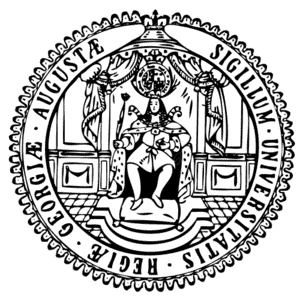
6. University of Freiburg
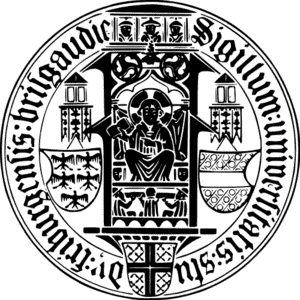
7. University of Bonn

8. RWTH Aachen University
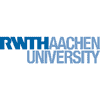
9. Free University of Berlin
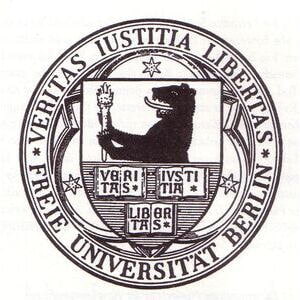
10. Karlsruhe Institute of Technology
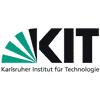
11. University of Tubingen
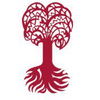
12. Goethe University of Frankfurt am Main

13. University of Cologne
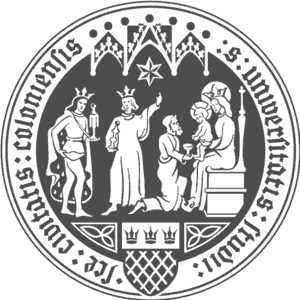
14. Humboldt University of Berlin
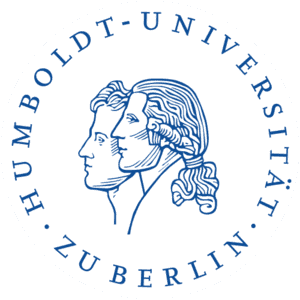
15. Dresden University of Technology
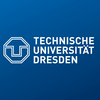
16. Kiel University

17. University of Erlangen Nuremberg
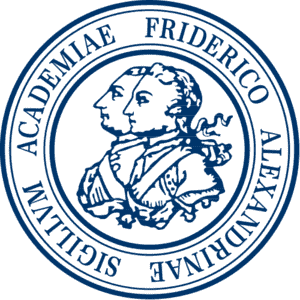
18. University of Stuttgart
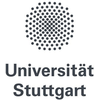
19. Technical University of Berlin
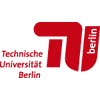
20. University of Munster
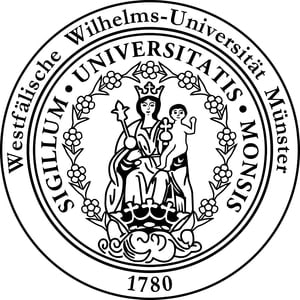
21. University of Bremen

22. Johannes Gutenberg University Mainz

23. Darmstadt University of Technology
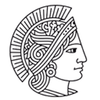
24. Charite - Medical University of Berlin
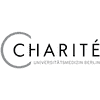
25. Ruhr University Bochum
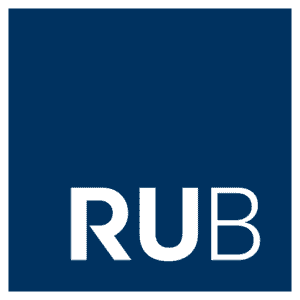
26. University of Leipzig
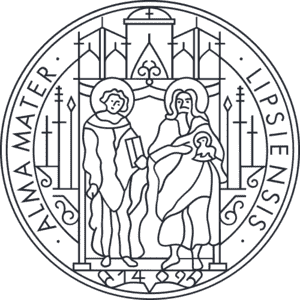
27. University of Wurzburg
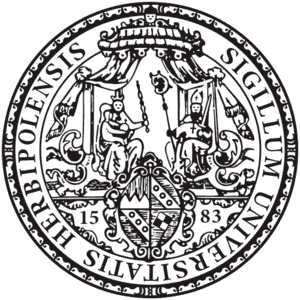
28. University of Giessen
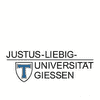
29. Leibniz University of Hanover
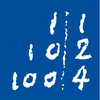
30. University of Potsdam
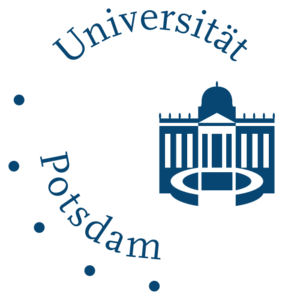
31. Friedrich Schiller University of Jena
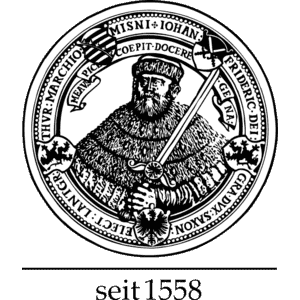
32. University of Bielefeld
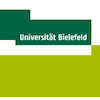
33. University of Hohenheim

34. Heinrich Heine University of Dusseldorf
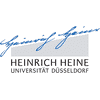
35. University of Duisburg - Essen
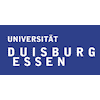
36. University of Marburg
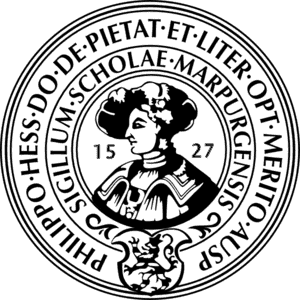
37. Saarland University

38. University of Mannheim
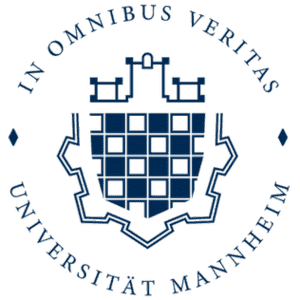
39. University of Bayreuth
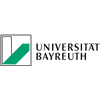
40. University of Kassel
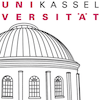
41. Braunschweig University of Technology
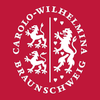
42. TU Dortmund University

43. University of Ulm
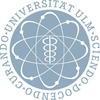
44. University of Konstanz
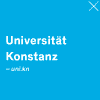
45. University of Regensburg

46. Hannover Medical School
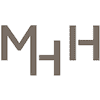
47. Technical University of Kaiserslautern

48. Martin Luther University of Halle-Wittenberg
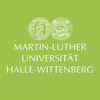
49. University of Rostock
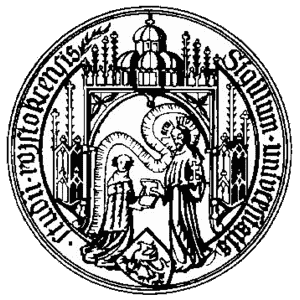
50. Otto von Guericke University of Magdeburg

51. Carl von Ossietzky University of Oldenburg
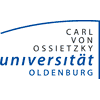
52. University of Paderborn

53. University of Lubeck
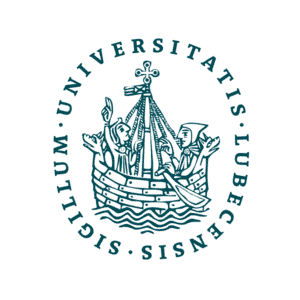
54. Osnabruck University
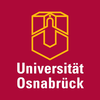
55. Leuphana University of Luneburg
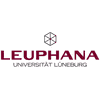
56. Hamburg University of Technology

57. University of Trier
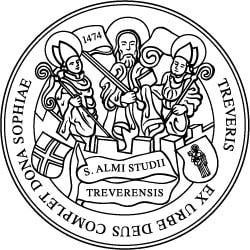
58. University of Augsburg
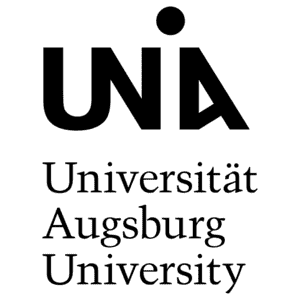
59. University of Wuppertal
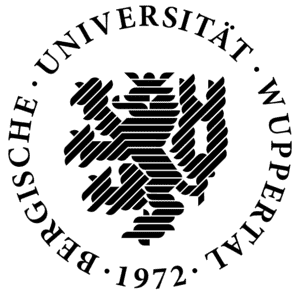

60. University of Greifswald
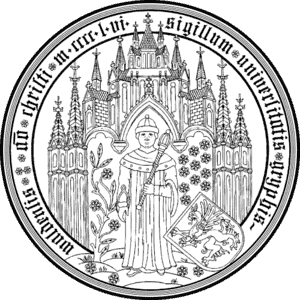
61. University of Siegen
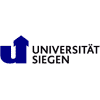
62. Chemnitz University of Technology
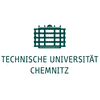
63. Freiberg University of Technology
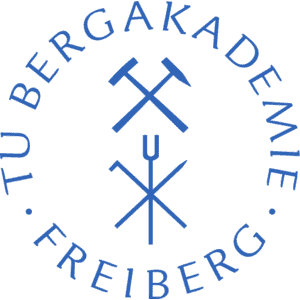
64. University of Bamberg
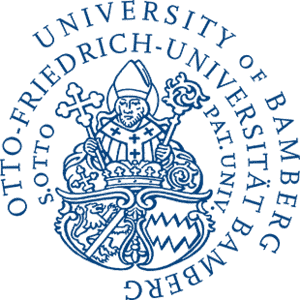
65. Munich University of the Federal Armed Forces
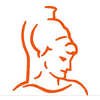
66. University of Passau
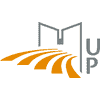
67. Witten/Herdecke University
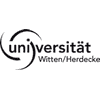
68. University of Koblenz-Landau
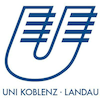
69. Clausthal University of Technology

70. Brandenburg University of Technology Cottbus - Senftenberg
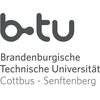
71. Bauhaus - University Weimar
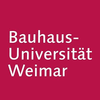
72. German Sport University Cologne
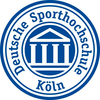
73. Jacobs University Bremen

74. University of Hagen

75. Ilmenau University of Technology
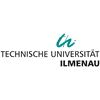
76. WHU - Otto Beisheim School of Management

77. University of the Federal Armed Forces Hamburg
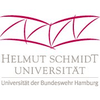
78. University of Erfurt
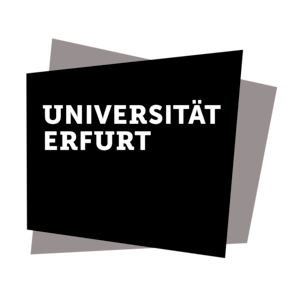
79. University of Veterinary Medicine Hannover
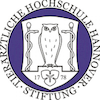
80. European University Viadrina
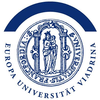
81. Catholic University of Eichstatt-Ingolstadt

82. Darmstadt University of Applied Sciences

83. Aachen University of Applied Sciences
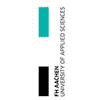
84. University of Hildesheim
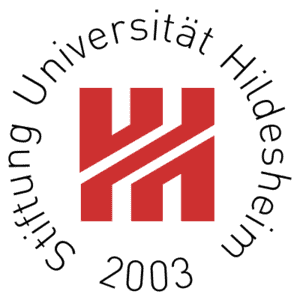
85. Folkwang University of the Arts

86. Weihenstephan-Triesdorf University of Applied Sciences

87. Berlin School of Economics and Law

88. Hertie School of Governance
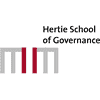
89. Hamburg University of Applied Sciences

90. Munich University of Applied Sciences

91. University of Banking of Frankfurt

92. Cologne University of Applied Sciences
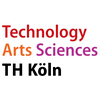
93. Bielefeld University of Applied Sciences

94. Reutlingen University
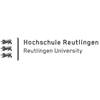
95. Zeppelin University

96. ESMT Berlin
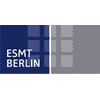
97. Mainz University of Applied Sciences

98. University of Vechta

99. EBS University for business and law
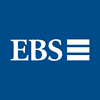
100. Karlsruhe University of Applied Sciences

The best cities to study Archaeology in Germany based on the number of universities and their ranks are Munich , Heidelberg , Hamburg , and Gottingen .
Liberal Arts & Social Sciences subfields in Germany
- Classical Archaeology

DPhil in Classical Archaeology
Overview of the doctoral procedure at kiel university.
The doctoral procedure consists of two elements: (A) writing a thesis and (B) an ensuing oral examination. As PhD candidate of our department, you will benefit in particular from our excellent archaeological library. In addition, national and international conferences offer the opportunity to discuss (your own) topics and will connect you with other academics.
Below you will find information on:
Requirements and supervision agreement
- Thesis and oral examination
- Doctoral certificate and doctoral degree
- Fundings and scholarships
- Binational doctorate
Detailed Information
- General doctoral guidelines of the CAU
- Supervision agreement
- Agreement on a binational doctorate
- Graduate Centre of Kiel University
To become a PhD candidate in our department of Classical Archaeology, you must formally fulfil the following requirements:
- MA degree in Classical Archaeology or a comparable course of study at (A) a German university or (B) an academic institution recognised as equivalent in Germany or (C) a university abroad
- Latin proficiency certificate
- Ancient Greece proficiency certificate
If you fulfil these criteria, you can contact your chosen supervisor. He/she will decide whether to accept you for the doctorate. At Kiel University, the following professors are available:
- Prof. Dr. Annette Haug Prof. Dr. Annette Haug supervises topics across the entire field of Classical Archaeology. In her own research, she is equally focused on urban and pictorial themes, covering the entire period from the early Greek period to late antiquity. She is interested in concepts of image and ornament in their spatial and medial context as well as in urban atmospheres and emotional spaces. For more specific topics, a second supervisor with appropriate expertise will be consulted. More about Prof. Dr. Annette Haug
- Prof. Dr. Patric-Alexander Kreuz Prof. Dr. Patric Alexander Kreuz supervises topics across the entire field of Classical Archaeology. His own research focuses on the architecture and urbanism of Greco-Roman antiquity, regional urban cultures and urban lifestyles in antiquity as well as contact zones of classical antiquity (Provinces of the Roman Empire, Hellenistic-Roman Near East, northern Black Sea region). For more specific topics, a second supervisor with appropriate expertise will be consulted. More about Prof. Dr. Patric-Alexander Kreuz
- PD Dr. Philipp Kobusch Philipp Kobusch is available for the supervision of doctoral theses in the entire field of Classical Archaeology. His research spreads over topics from the Archaic to the Imperial period and the west of the Roman Empire to the eastern Mediterranean. A particular focus is on ancient architecture and its relationship to humans’ activities and discourses as well as on the re-contextualisation of objects. For more specific topics, a second supervisor with appropriate expertise will be consulted.Peinschlägige*r Zweitbetreuer*in hinzugezogen. More about PD Dr. Philipp Kobusch
- PD Dr. Pascal Weitmann Mr. PD Dr. Pascal Weitmann supervises PhD theses on request, covering the entire subject of classical archaeology, the afterlife of ancient art up to the present day as well as philosophical questions connected to this field. In his perspective, Classical Archaeology is primarily the history of Greco-Roman art and the philosophical as well as ideological convictions underlying it. More about Dr. Pascal Weitmann
After defining a topic of your dissertation both PhD candidate and supervisor reach a supervision agreement. Afterwards you submit an application for PhD. A complete list of the documents required can be found in the doctoral regulation (§6).
- Official Announcements
- Accessibility
- Data Protection

The IMPRS LSHO provides interdisciplinary training and research opportunities for university graduates who wish to pursue a PhD in anthropology, archaeology, biology, biochemistry, bioinformatics, computational biology, evolutionary genetics, human behavioral ecology, paleoanthropology, primatology, psychology, and related fields.
The typical duration of a PhD thesis at the IMPRS "The Leipzig School of Human Origins" (IMPRS LSHO) is 3 to 4 years. Our PhD program includes the following three disciplines:
1. Molecular Anthropology
This field provides valuable insights into the genetic history, diversity and biology of human populations as well as the broader implications of genetic research for understanding human evolution, health and identity. It integrates methods and concepts from genetics, anthropology, archaeology, and other disciplines to address questions about our shared human heritage and the factors that have shaped our biological and cultural diversity. We use and develop genetic techniques and methods to study the evolutionary history, genetic diversity, and population dynamics of human populations, their non-human primate relatives and other organisms.
Participating departments and research groups:
- Advanced DNA Sequencing Techniques Research Group (MPI, Meyer) Matthias Meyer
- Computational Ancient Genomics Research Group (MPI, Kelso) Janet Kelso, Stéphane Péyregne
- Department of Archaeogenetics (MPI, Krause) Kirsten Bos, Wolfgang Haak, Alexander Herbig, Zuzana Hofmanová, Johannes Krause, Alissa Mittnik, Kay Prüfer, Harald Ringbauer, Stephan Schiffels, Matthew Skinner, Philipp Stockhammer, Christina Warinner
- Department of Evolutionary Genetics (MPI, Pääbo) Svante Pääbo, Benjamin Peter, Stephan Riesenberg, Hugo Zeberg
- Department of Primate Behavior and Evolution (MPI, Tung) Genevieve Housman, Jenny Tung, Linda Vigilant
- Faculty of Life Sciences, Behavioral Ecology (LU, Widdig) Anja Widdig
- Faculty of Mathematics and Computer Science, Bioinformatics (LU, Stadler) Peter Stadler
- Faculty of Medicine, Molecular Biochemistry (LU, Schöneberg) Torsten Schöneberg
- Human Palaeogenomics Research Group (MPI, Hajdinjak) Mateja Hajdinjak
- Max Planck Research Group for Ancient Environmental Genomics (MPI, Vernot) Benjamin Vernot
- Otto Hahn Research Group Tropical Archaeogenomics (MPI, Nägele) Kathrin Nägele
2. Human History, Evolution and Ecology
This multidisciplinary field explores the interactions between humans and their environments over time. By integrating insights from history, evolution and ecology we seek to understand the long-term trajectories of human societies, the factors that drive cultural and biological change and the relationships between humans (i.e. modern humans, fossil humans or their fossil relatives) and their (palaeo-) environments, including both natural and human-made ecosystems. We also address present-day challenges and strategies for building a sustainable and equitable future.
- Department of Archaeogenetics (MPI, Krause) Kirsten Bos, Wolfgang Haak, Alexander Herbig, Zuzana Hofmanová, Johannes Krause, Alissa Mittnik, Kay Prüfer, Harald Ringbauer, Stephan Schiffels, Matthew Skinner, Philipp Stockhammer, Christina Warinner, Matthew Skinner
- Department of Human Behavior, Ecology and Culture (MPI, McElreath) Bret Beheim, Adam Boyette, Laurel Fogarty, Anne Kandler, Corina Logan, Dieter Lukas, Richard McElreath, Adam Powell, Cody Ross
>>> Evolution of Brain Connectivity (MPI, Gunz, Haun, McElreath) Philipp Gunz, Daniel Haun, Richard McElreath, Alexandra Schuh
- Department of Human Origins (MPI, Kivell) Marine Casenave, Philipp Gunz, Tracy Kivell, Shannon McPherron, Adam van Casteren
- Department of Primate Behavior and Evolution (MPI, Tung) Fernando Colchero, Martha Robbins, Jenny Tung
- Lise Meitner Research Group BirthRites - Cultures of Reproduction (MPI, Colleran) Heidi Colleran
- Lise Meitner Research Group Technological Primates (MPI, Luncz) Lydia Luncz
3. Language, Culture and Cognition
Bringing together linguistics, anthropology, psychology, cognitive sciences, evolutionary biology, social sciences, computer sciences and communication studies this field aims to explore how language shapes and is shaped by culture and how cognition influences language and cultural practices. Research in this field provides insights into fundamental questions about human nature, identity, social interaction and cultural diversity and the complex interplay of these aspects in diverse environments.
- Department of Comparative Cultural Psychology (MPI, Haun) Sarah Caldwell, Daniel Haun, Kathrin Kopp, Roman Stengelin, Maleen Thiele, Christoph Völter, Dustin Eirdosh
- Department of Human Behavior, Ecology and Culture (MPI, McElreath) Bret Beheim, Adam Boyette, Laurel Fogarty, Anne Kandler, Corina Logan, Dieter Lukas, Richard McElreath, Adam Powell, Daniel Redhead, Cody Ross
>>> Evolution of Brain Connectivity (MPI, Gunz, Haun, McElreath) Philipp Gunz, Daniel Haun, Richard McElreath, Alexandra Schuh
- Department of Linguistic and Cultural Evolution (MPI, Gray) Angela Chira, Russell Gray, Martin Haspelmath, Benedict King, Johann-Mattis List, Mary Walworth
- Faculty of Life Sciences, Cognitive and Biological Psychology (LU, Schröger) Erich Schröger
- Faculty of Life Sciences, Human Biology and Primate Cognition (LU, Liebal) Katja Liebal

Links and Functions
- www.en.lmu.de
- LMU excellent
Language Selection
Breadcrumb navigation.
- Doctoral Programs
Doctoral Program Classical and Ancient Studies (PAW)
Main navigation.
- Doctoral Studies
- Consultation
The Doctoral Program Classical and Ancient Studies (PAW) unites the skills of the subjects related to ancient cultures from a total of seven faculties (Catholic and Protestant Theology, Law, History, Philosophy, Cultural studies, Languages and Literatures) that are involved in the Munich Center of Ancient Worlds (MZAW). The aim of PAW is to improve the quality of the doctoral training by targeted promotion of individual talents and subject-specific skills, with elements aimed at academic qualification and with a structured supervision concept. The problems, methodological approaches and results of the various participating dissertation projects are integrated from the very beginning into a broader theoretical and historical context by means of accompanying interdisciplinary courses. In addition, regular colloquia allow an exchange of information and ideas amongst the participants and with the professors and lecturers.
Web: www.mzaw.lmu.de/paw
- Privacy Policy
- Accessibility
Faculty of Philosophy Classical Archaeology
Classical Archaeology is the study of the material remains of ancient Greek and Roman cultures, as well as of their predecessors, the influence of these cultures on future civilisation, and of the other cultures that surrounded them. The bandwidth of material remains ranges from articles used in everyday life to structures in the settlements to artefacts and drawings. It thereby encompasses all areas in which culture is visible.
The geographical areas examined in Classical Archaeology include the core regions of Greece, Asia Minor, and Italy, as well as portions of Europe and southwest Asia.
In terms of chronological periods, studies will emphasise the earliest artefacts of the Minoan and Mycenaean cultures from the Bronze Age (3rd to 2nd millennia B.C.E.). In the centuries preceding and following the birth of Christ, emphasis will be on the Greek and Italian city-states, the Hellenic monarchies, and the Roman Empire up until the late Antiquity (4th/5th centuries C.E.). Research on the reception of antiquity in later periods, the history of archaeological research, and consideration of museological issues surrounding the public exhibition of ancient cultural artefacts extends to the present day.
Concrete research areas may also include inter-related spatial contexts – e.g. the archaeological remains of a residence, a settlement, a necropolis, a sacred site – or particularly meaningful individual artefacts, especiallysculptures.
Classical Archaeology is ultimately distinguished by the great number of epigraphic and literary texts in both Greek and Latin available to researchers, which can also lay the groundwork for stimulating discussion.

Special Features and Characteristics
Classical Archaeology at Heidelberg University is characterised by the diverse range of topics offered, which, in addition to the core areas of Greek and Roman archaeology, also includes intensive study of the Aegean Bronze Age as well as Etruscology and provincial Roman archaeology. The reception of antiquity, museology, and the study of findings from archaeological research conducted using digital media are other areas of focus. A similarly wide bandwidth is found in the areas of archaeological methodology and research topics, in which excavation/first-hand individual analysis and wide-ranging discourse on cultural theory are given equal emphasis. In addition, Classical Archaeology is embedded in a wide spectrum of other ancient studies and humanities programmes and has, as well, its own active support organisation, the FORUM ANTIKE.
The Institute’s own collection of original and plaster cast sculptures, as well as the internationally-renowned Institute library and the University library’s special “Classical Archaeology” collection, funded by the German Research Foundation (DFG), provide students with ideal resources for pursuing their studies.
In addition, the Institute actively conducts its own research projects and is also well-networked with partner universities both within Germany and abroad.
- Institute of Classical Archaeology and Byzantine Archaeology (DE)
The education provided at the Institute for Classical Archaeology places strong emphasis on the following research areas:
- Aegean Bronze Era
- Greek and Roman image culture, with particular emphasis on sculpture and vase painting
- Archaeological field research
- Methodology and reflection of methods in archaeology, cultural anthropology, and visual culture
- The reception of antiquity in the early modern and modern eras
- Museological conception and presentation of antique cultural artefacts in exhibits and in digital media
These primary teaching and research areas are also reflected in the following collaborations and projects:
- Minoan Kousama Reconstruction of an archaeological landscape
- Training excavation in Eisenberg/Pfalz
- Troizen Survey (Peloponnese, Greece)
- The Corpus of the Minoan and Mycenaean Seal (archive and research centre for the scientific investigation of newly-discovered Aegean seals as well as maintenance of the online database)
- Subproject A10 of the CRC 933 Material Text Cultures (Text and Image in Greek Sculpture: A Case-Study on Athens and Olympia from Archaic to Imperial Age)
- Collaboration with the Heidelberg Center for Cultural Heritage (HCCH)
Occupational Areas
Graduates of the Classical Archaeology programme traditionally pursue professions in the following areas:
- Universities
- Museums
- Major research institutions
- State Monuments Preservation offices
- Private excavation companies
Other career options include serving as an interface between the scientific community and the general public, e.g.:
- At publishing houses
- In academic journalism
- In the area of digital media visualisation
- In cultural and scientific management
Degree variants
Bachelor 25%
Bachelor 50%
Bachelor 75%
Master, consecutive

I am generally very interested in history and love the fact that objects can tell a story. I chose Heidelberg for my Master’s programme because it is one of the best universities in Germany and provided me with a different perspective of the subject.
Aikaterini Vrettou, 24, Classical Archaeology, 3rd semester Master
Further Interesting Subjects

Ancient History
Byzantine Archaeology and Art History

Greek / Classical Philology

Latin / Classical Philology

Near Eastern Archaeology

COMMENTS
Top-ranked German Universities in Archaeology. Top 100 Worldwide. Top 250 Worldwide. National Ranking. #38 Times Higher Education Ranking. LMU - Ludwig-Maximilians-Universität München. public University. No. of Students: approx. 53,000 students. Program Fees: € 0 - € 10,000 (per semester)
Degree requirements: Upper class (above average mark) MA or Magister-level degree in Classical Archaeology or comparable degree (“in a subject relevant for the doctoral programme” (see § 3 (1) of the Promotionsordnung des Fachbereichs Geschichts- und Kulturwissenschaften (PhD Regulations). Equivalence of qualifications may have to be ...
At least one of the supervisors should be a full professor at the University of Tübingen – for a PhD in Paleoanthropology this would typically be Prof. Harvati. Other senior members of the group can act as second supervisors, on a case-by-case basis. A PhD in Germany usually takes ~3 years and can be conducted either in German or in English.
97. Mainz University of Applied Sciences. 98. University of Vechta. 99. EBS University for business and law. 100. Karlsruhe University of Applied Sciences. The best cities to study Archaeology in Germany based on the number of universities and their ranks are Munich, Heidelberg, Hamburg, and Gottingen.
To become a PhD candidate in our department of Classical Archaeology, you must formally fulfil the following requirements: MA degree in Classical Archaeology or a comparable course of study at (A) a German university or (B) an academic institution recognised as equivalent in Germany or (C) a university abroad; Latin proficiency certificate
The typical duration of a PhD thesis at the IMPRS "The Leipzig School of Human Origins" (IMPRS LSHO) is 3 to 4 years. Our PhD program includes the following three disciplines: 1. Molecular Anthropology. This field provides valuable insights into the genetic history, diversity and biology of human populations as well as the broader implications ...
The Doctoral Program Classical and Ancient Studies (PAW) unites the skills of the subjects related to ancient cultures from a total of seven faculties (Catholic and Protestant Theology, Law, History, Philosophy, Cultural studies, Languages and Literatures) that are involved in the Munich Center of Ancient Worlds (MZAW). The aim of PAW is to ...
Classical Archaeology is the study of the material remains of ancient Greek and Roman cultures, as well as of their predecessors, the influence of these cultures on future civilisation, and of the other cultures that surrounded them. The bandwidth of material remains ranges from articles used in everyday life to structures in the settlements to ...
We recommend modifying the filters to get the best results. Find the list of all universities for PHD in Archaeology in Germany with our interactive university search tool. Use the filter to list universities by subject, location, program type or study level.
Focus. We provide a wide range of interdisciplinary programs for students with an interest in the ancient world who wish to pursue a doctorate in any area of Ancient Studies and related fields: Ancient Languages and Texts. Ancient Philosophy and History of Ancient Science. Ancient Objects and Visual Studies. Landscape Archaeology and Architecture.